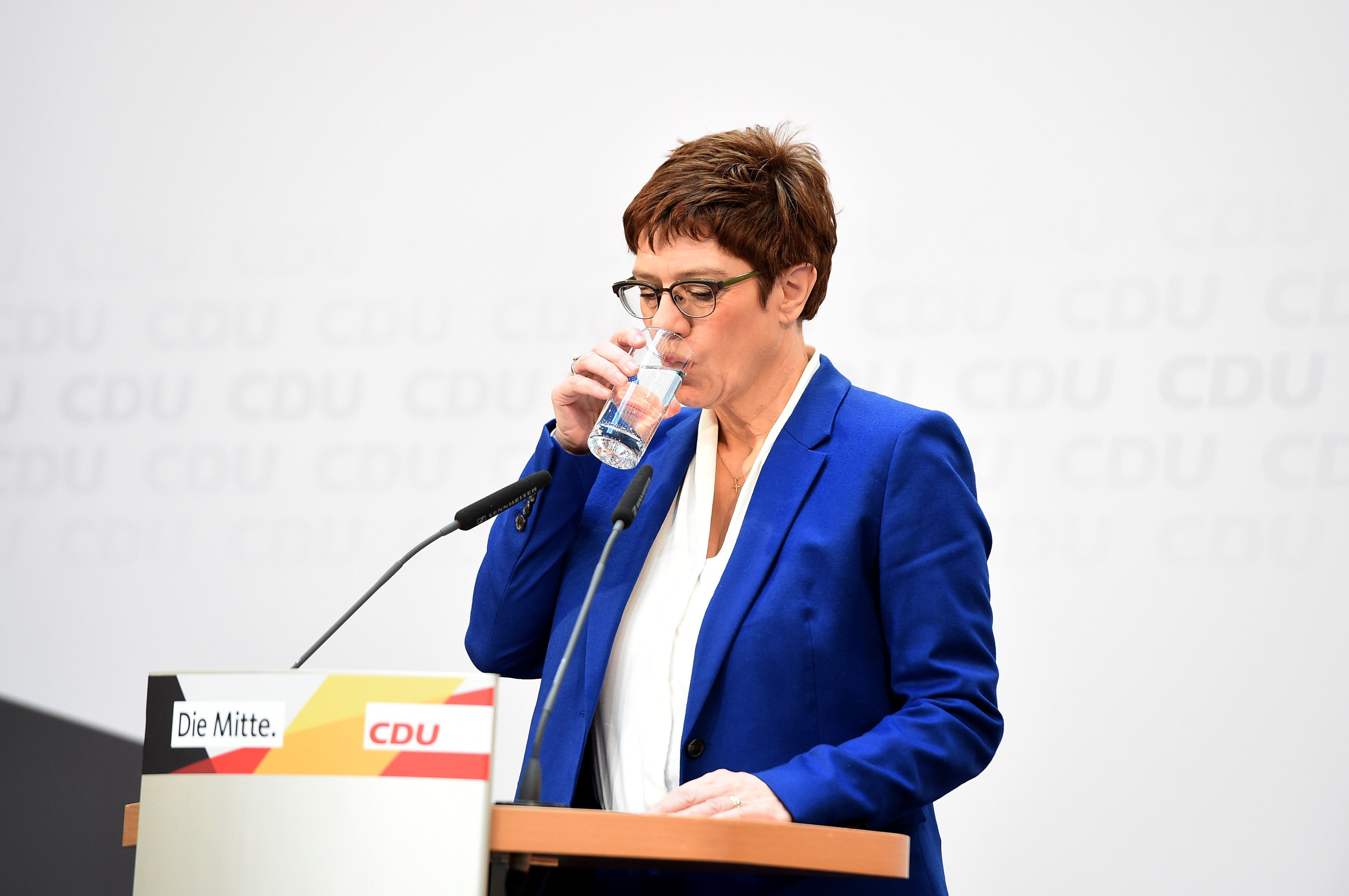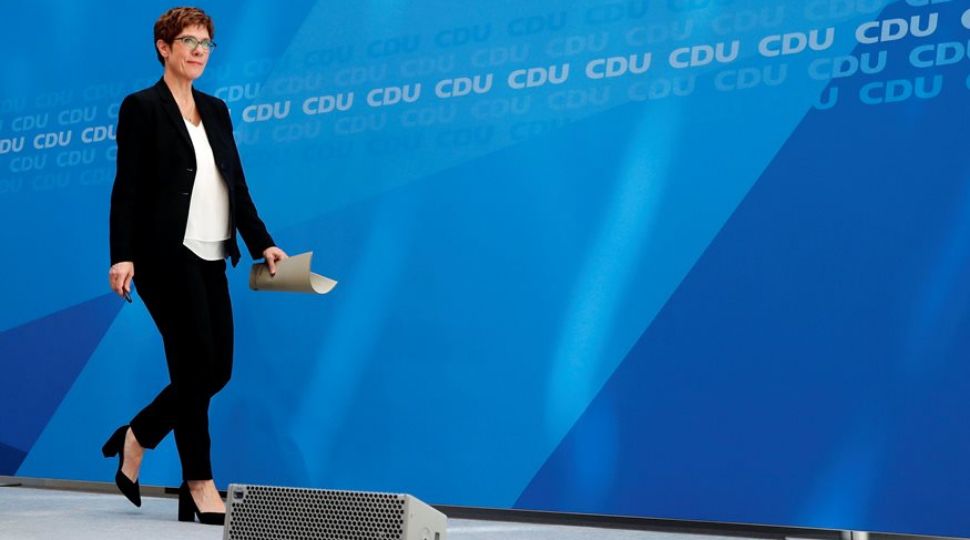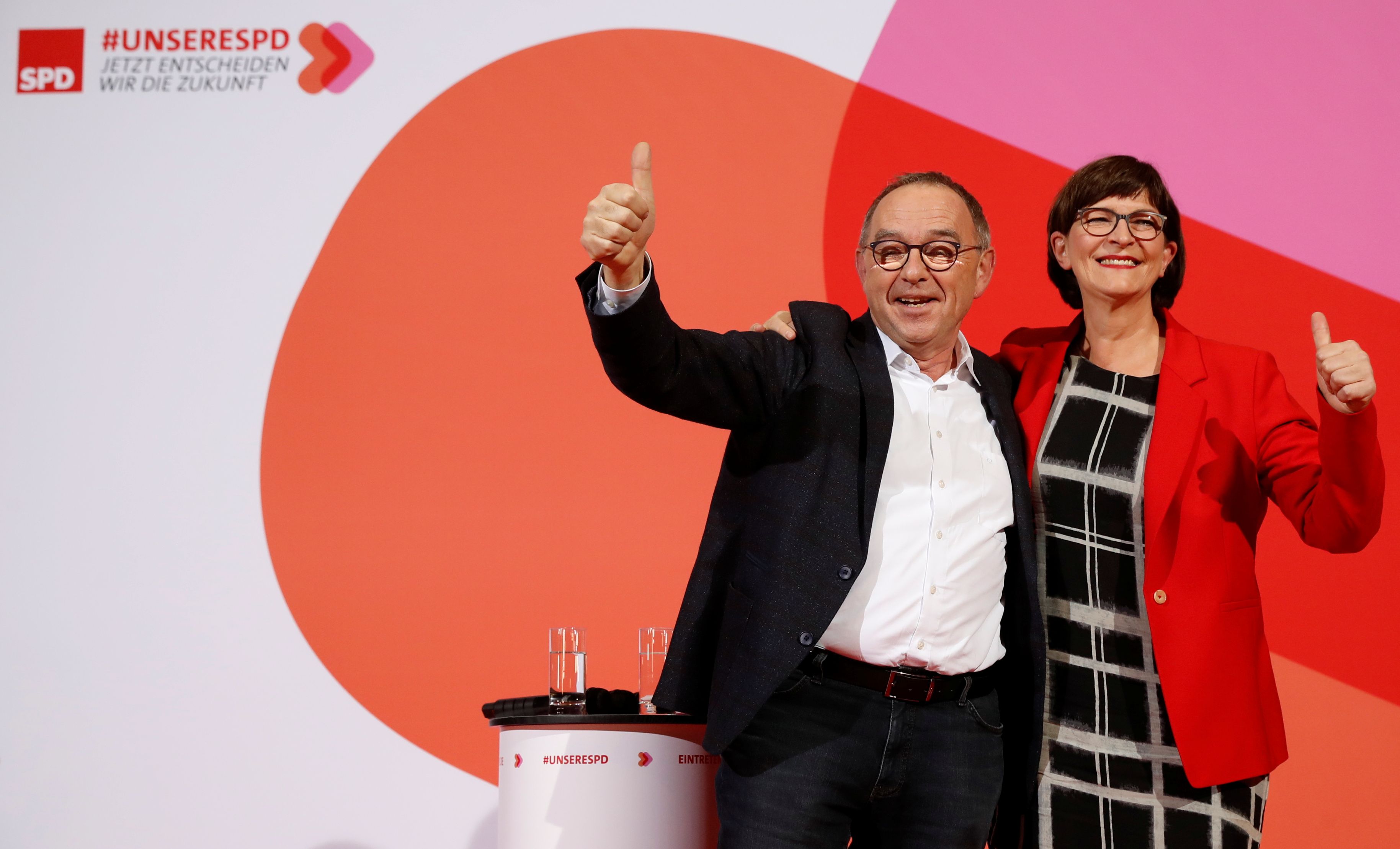Waiting for a New Leader—the Resignation of Annegret Kramp-Karrenbauer

The consequence of the political crisis in Thuringia is Annegret Kramp-Karrenbauer’s resignation as CDU president and from seeking the party’s nomination to be the chancellor candidate during the next elections to the Bundestag. Her decision increases the risk of the break-up of the government coalition. This threatens to destabilise the internal situation in Germany and weaken its position in the EU.
Why did Kramp-Karrenbauer decline to seek the CDU nomination for chancellor?
Since taking over as the chair of the CDU in December 2018, Kramp-Karrenbauer had failed to strengthen her position as the leader of the grouping, culminating in the poor results for the Christian Democrats in the European Parliament elections and in Brandenburg, Saxony, and Thuringia. Her authority in the party was also weakened by the separation of the CDU chair from the chancellorship, which is still held by Angela Merkel. As a result, Kramp-Karrenbauer remains one of the lowest-rated German politicians. According to the Infratest dimap institute, in February, 70% of respondents reported they were dissatisfied with her. The immediate reason for her resignation was the political crisis in Thuringia. After the election of Thommas Kemmerich (FDP) as prime minister, thanks to the support of the Christian Democrats and AfD, Kramp-Karrenbauer declared the need for new federal elections. Local party members opposed this, which called into question her ability to enforce federal board decisions on the regional structures.
What does the Kramp-Karrenbauer decision mean for the CDU?
The resignation of Kramp-Karrenbauer confirms that attempts to counter the weakening of the party have failed. The new chair will face the task of strengthening the Christian Democrats by rebuilding the authority of the group’s leadership at the federal level and eliminating internal party divisions. This is important given the clear readiness of the CDU structures in the east of Germany to establish cooperation with the AfD, even against the position of the party’s board in Berlin. At the same time, the Christian Democrats will have to face the competition from the Greens, who are an attractive alternative for the centrist portion of the electorate. The election of a new chair is crucial for CDU to achieve a good result in the Bundestag elections, especially since they may take place, not in autumn 2021, but this year.
Who might take over as CDU chair?
At the top of the list of potential candidates for the position of chair of the CDU are Prime Minister of North Rhine-Westphalia Armin Laschet and the former chairman of the CDU/CSU faction in the Bundestag, Friedrich Merz, who lost to Kramp-Karrenbauer in the second round of elections for the party chair in December 2018. Others include Health Minister Jens Spahn and Schleswig-Holstein Prime Minister Daniel Günther. Who takes over CDU leadership may depend on who will be the Christian Democrats’ candidate for German chancellor—a decision on this matter will probably precede the December election of the party chairman. The change in management will determine the party’s direction. The choice of Laschet or Günther would mean the continuation of the course set by Merkel. If Merz or Spahn win, it means a stronger conservative wing within the CDU.
How does Kramp-Karrenbauer’s resignation affect the future of the grand coalition?
For fear of destabilising the political situation in Germany, SPD will not break the coalition with the Christian Democrats in the coming weeks. However, it may still happen this year. This possibility is supported by fears that the crisis in the CDU will slow the implementation of the coalition agreement, potentially decreasing public satisfaction in the government and leading to the further outflow of SPD voters. The Social Democrats may also leave the grand coalition if the conservative representatives of the CDU—Merz or Spahn—succeed as chair of the party, which would accelerate Merkel’s resignation from the federal government.
What effect will there be on German foreign policy?
Although her decision does not immediately affect key government positions—Kramp-Karrenbauer remains minister of defence and Merkel chancellor—the crisis in the CDU and the risk of the break-up of the grand coalition will weaken Germany’s position in foreign policy. This is particularly unfavourable given the current negotiations on the EU multiannual financial framework for 2021–2027, future cooperation with the UK after it left the European Union, as well as Germany’s presidency of the EU Council in the second half of this year. Until a new chair is elected, and then a government coalition secured, Germany will continue its current course in relations with major international partners. Internal destabilisation may hinder actions to block the participation of Chinese companies in the construction of the German 5G network. Most likely, the focus on the internal situation will also weaken Germany’s involvement in initiatives such as ending the conflict in Libya and settling the situation in Donbas.





